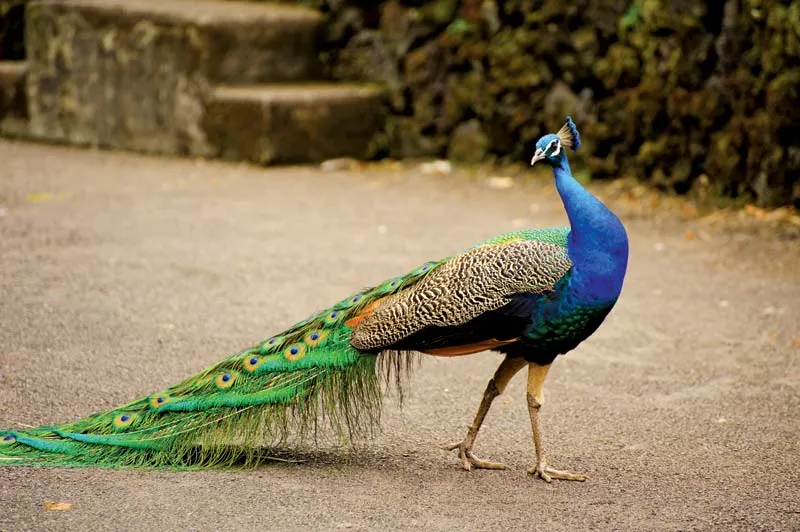The 10 Lines On Peacock In English, scientifically known as Pavo cristatus, is an enchanting bird celebrated for its resplendent plumage and graceful demeanor. Found predominantly in the Indian subcontinent, particularly in forested regions, grasslands, and cultivated areas, the peacock is a symbol of beauty and elegance in various cultures around the world.
10 Lines On Peacock In English
- The peacock, scientifically known as Pavo cristatus, is one of the most magnificent and captivating birds found in nature.
- Renowned for its stunning plumage, the peacock boasts vibrant iridescent feathers that shimmer with hues of blue, green, and gold.
- Native to the Indian subcontinent, peacocks are commonly spotted in forested areas, grasslands, and cultivated lands.
- Male peacocks, known as peafowls, exhibit the iconic tail feathers, or “train,” which they display during courtship rituals to attract females.
- Despite their extravagant appearance, peacocks are surprisingly agile flyers and can soar to impressive heights when necessary.
- Peacocks are omnivores, feeding on a varied diet that includes grains, seeds, insects, small reptiles, and even small mammals.
- In Hindu mythology, the peacock is associated with Saraswati, the goddess of wisdom, and is considered a symbol of beauty, grace, and immortality.
- Peacocks are also revered in other cultures, symbolizing royalty, spirituality, and protection against evil forces.
- Conservation efforts are underway to protect peacock populations from habitat loss, poaching, and illegal trade.
- With its mesmerizing beauty and cultural significance, the peacock continues to captivate admirers worldwide, serving as a symbol of nature’s splendor and diversity.
With its striking appearance, the peacock is instantly recognizable by its vibrant and iridescent feathers. The male peacock, known as a peafowl, boasts a magnificent train of feathers that cascade behind it in a mesmerizing display of blues, greens, and golds. This elaborate tail is used during courtship rituals to attract females, showcasing the peacock’s vitality and genetic fitness.
Despite its regal appearance, the peacock is surprisingly agile and versatile. While it is primarily a ground-dwelling bird, the peacock is capable of short bursts of flight, using its powerful wings to navigate its environment and escape potential threats. Its ability to soar to great heights adds to the mystique and allure of this majestic creature.
In addition to its stunning appearance, the peacock plays a significant role in various mythologies and religious traditions. In Hindu mythology, the peacock is associated with Saraswati, the goddess of wisdom, learning, and the arts. It is revered as a symbol of beauty, grace, and immortality, representing the divine qualities of creativity and enlightenment.
Beyond its cultural and symbolic significance, the peacock also serves a practical purpose in its ecosystem. As an omnivorous bird, the peacock plays a crucial role in controlling insect populations and dispersing seeds, contributing to the balance and biodiversity of its habitat. Its presence in the wild underscores the importance of conservation efforts to protect its natural habitat and ensure its continued survival.
Despite its resilience, the peacock faces various threats to its existence, including habitat loss, poaching, and illegal trade. Conservation organizations and wildlife authorities work tirelessly to safeguard peacock populations and preserve their natural habitats through habitat restoration, anti-poaching measures, and public awareness campaigns.
Conclusion
The peacock stands as a symbol of beauty, grace, and vitality in the natural world. Its dazzling plumage and cultural significance make it a beloved and iconic bird cherished by people around the globe. By appreciating and protecting the peacock and its habitat, we can ensure that future generations will continue to marvel at its splendor and majesty.





One thought on “10 Lines On Peacock In English”